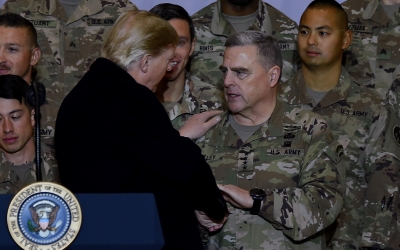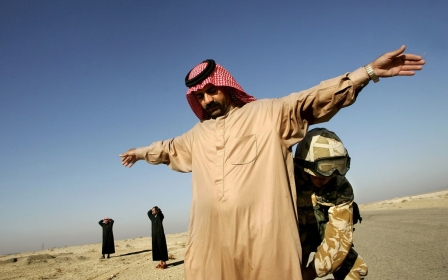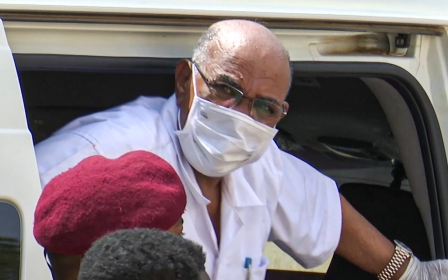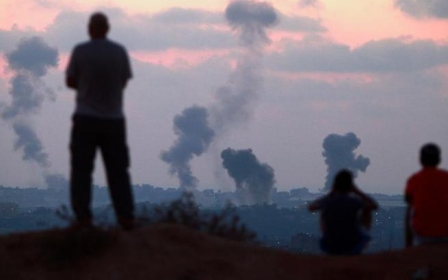US sanctions senior ICC officials, calls court 'corrupt' and 'illegitimate'
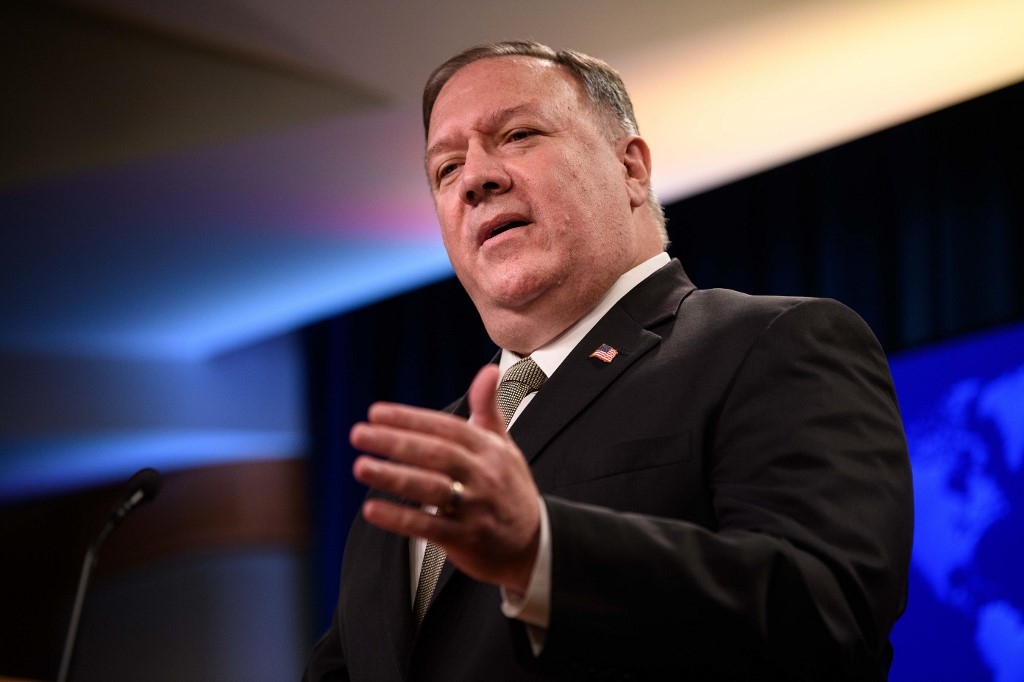
US Secretary of State Mike Pompeo announced that Washington will impose sanctions on two senior International Criminal Court (ICC) officials, accusing the court of being an "illegitimate" and "corrupted" institution.
In a news briefing on Wednesday, Pompeo said those newly blacklisted include ICC prosecutor Fatou Bensouda and Phakiso Mochochoko, the head of the court's jurisdiction, complementarity and cooperation division.
Individuals and entities that "continue to materially support those individuals risk exposure to sanctions as well," Pompeo said.
'The United States has never ratified the Rome Statute that created the court, and we will not tolerate its illegitimate attempts to subject Americans to its jurisdiction'
- Mike Pompeo, US Secretary of State
Visa restrictions will also be designated against certain individuals "involved in the ICC's efforts to investigate US personnel", the top diplomat said. Washington first imposed visa restrictions on ICC officials last March.
"The United States has never ratified the Rome Statute that created the court, and we will not tolerate its illegitimate attempts to subject Americans to its jurisdiction," Pompeo said during Wednesday's briefing, doubling down on an executive order signed by US President Donald Trump in June.
New MEE newsletter: Jerusalem Dispatch
Sign up to get the latest insights and analysis on Israel-Palestine, alongside Turkey Unpacked and other MEE newsletters
At the time, Trump authorised sanctions against ICC officials investigating abuses by Americans and Israelis, stressing that the Hague-based tribunal has no "jurisdiction over personnel of the United States and certain of its allies".
The executive order froze any assets of targeted ICC investigators in the US and banned them and their immediate family members from entering the country.
While the decree does not mention Israel by name, it repeatedly states that the sanctions aim to protect US "allies" that are not party to the Rome Statute that established the court in 1998. Israel and the United States are two of the few countries that rejected the founding of the court, while 123 countries have agreed to its mandate.
The ICC condemned the sanctions later on Wednesday as “another attempt to interfere with the Court's judicial and prosecutorial independence and crucial work to address grave crimes of concern to the international community as mandated under the ICC Rome Statute.”
“These coercive acts, directed at an international judicial institution and its civil servants, are unprecedented and constitute serious attacks against the Court, the Rome Statute system of international criminal justice, and the rule of law more generally,” a statement added.
Bensouda's investigation of Israel
Late last year, ICC prosecutor Bensouda announced a full-scale investigation into Israeli violations against Palestinians in the West Bank and Gaza.
"I am satisfied that there is a reasonable basis to proceed with an investigation into the situation in Palestine," Bensouda said in a statement in December.
"In brief, I am satisfied that war crimes have been or are being committed in the West Bank, including East Jerusalem, and the Gaza Strip."
A pre-trial report released in January said the investigation would focus on alleged war crimes committed by Israel in the 2014 war on Gaza, the transfer of Israeli civilians into the occupied West Bank, and the shooting of protesters during the Great March of Return.
Israeli officials have strongly condemned the investigation, arguing that the Palestinian Authority's request for an international probe is void because Palestine is not a sovereign state.
'Dead to us'
The ICC is also investigating allegations of abuse by US troops and intelligence officials in Afghanistan.
In June, Pompeo warned US allies against allowing the ICC to proceed with its probes.
"Your people could be next, especially those from Nato countries who fought terrorism in Afghanistan right alongside us," he said at the time.
Amnesty International denounced the June US sanctions, alleging that the orders target NGOs, activists and government officials working to advance international justice.
"The Trump administration has a well-honed pattern of undermining and all-out assaults on multilateral institutions, rather than doing the sometimes difficult, but necessary work of joining them, sustaining them, and working to improve them," said Daniel Balson, advocacy director for Amnesty International USA.
Balson called the move "yet another assault on vital institutions that help people look after one another and provide survivors of rights abuses with justice".
The Trump administration has adopted a hostile position against the ICC and other international institutions for the past three years.
"We will not cooperate with the ICC. We will provide no assistance to the ICC. We will not join the ICC. We will let the ICC die on its own. After all, for all intents and purposes, the ICC is already dead to us," then-National Security Adviser John Bolton said in 2018.
Trump has also withdrawn the United States from the World Health Organisation (WHO), as well as the UN cultural agency Unesco and the UN's Human Rights Council over what it called a bias against Israel.
Middle East Eye delivers independent and unrivalled coverage and analysis of the Middle East, North Africa and beyond. To learn more about republishing this content and the associated fees, please fill out this form. More about MEE can be found here.


